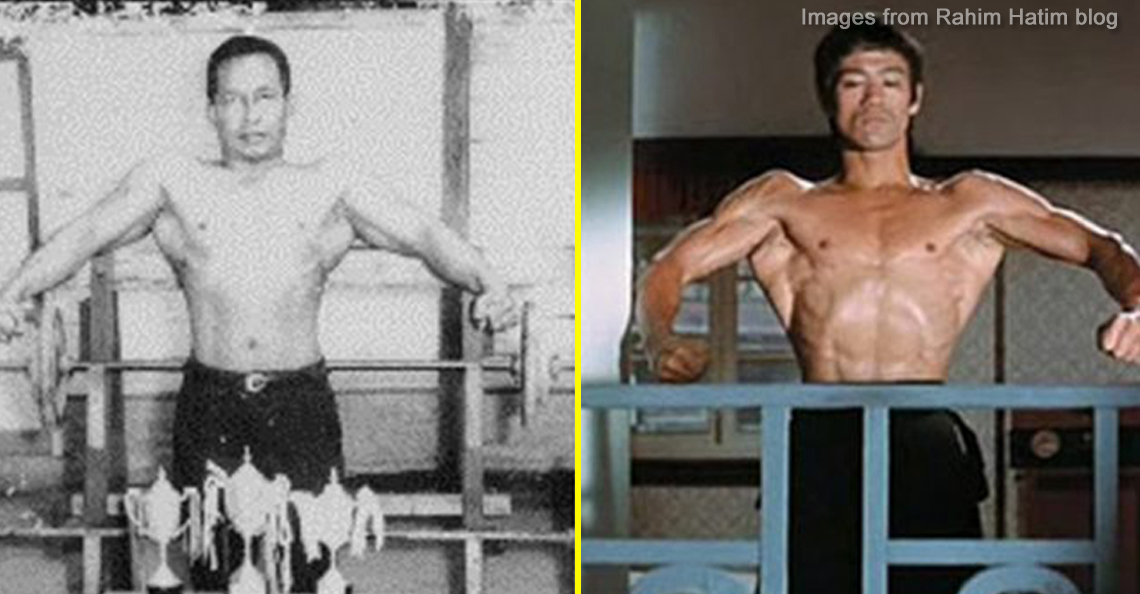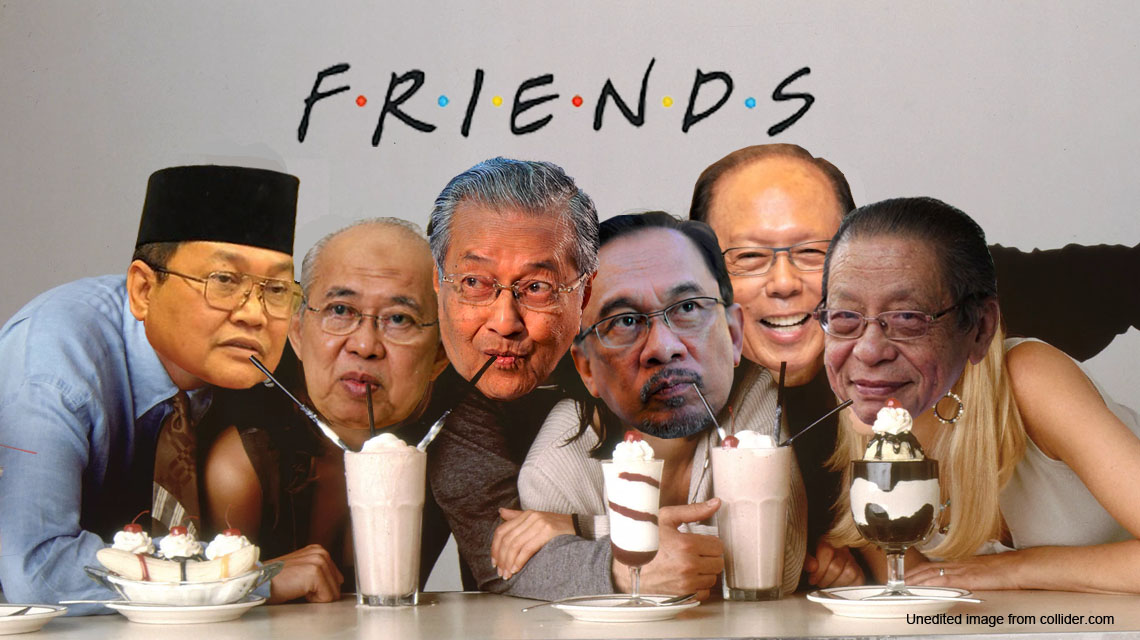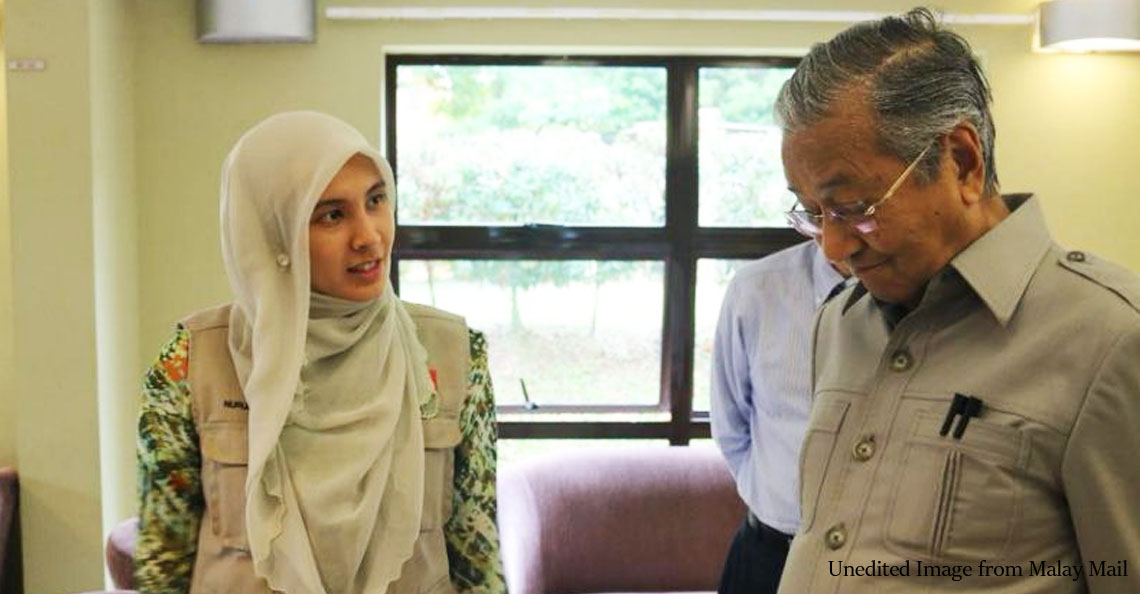4 things you didn’t know about Special Branch, Malaysia’s Most Mysterious Police Unit
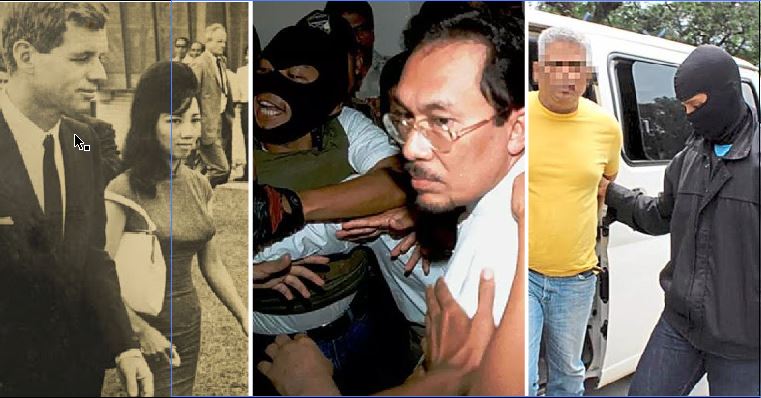
- 1.8KShares
- Facebook1.5K
- Twitter36
- LinkedIn28
- Email41
- WhatsApp139
PS: If you’d like more stories like this, please subscribe to our HARI INI DALAM SEJARAH Facebook group ?
“Eh, see that uncle over there. So shady. Like SB je…”
“Ya wei. Everyday same spot, always watching people oni. Confirm Special Branch.”
You’ve probably had the above conversation at some point or another if you and your buddies know a thing or two about police methods. There are times where you just have to watch that weirdo who keeps bugging random people, and eventually your so-called ‘SB senses’ kick into action, warning you that said person may, or may not be an SB (Special Branch).

This mysterious police unit, founded during the Malayan Emergency to fight Commies, has recently been thrust into the spotlight because of SUHAKAM’s allegations that they were behind the disappearances of social activist Amri Che Mat and Pastor Raymond Koh, who disappeared in 2016 and 2017, respectively.
This isn’t the first time the Special Branch has made headlines: they were heavily involved in Anwar’s first sodomy trial, and notable former Special Branch members include the late PI Bala (the cop who accused, then unaccused, then re-accused Najib of Altantuya’s murder), as well as our previous IGP, Tan Sri Muhd Fuzi Harun (who, incidentally, was Special Branch director when the disappearances of Amri and Pastor Koh occured).
UPDATE: As of 4th May 2019, Datuk Seri Abdul Hamid Bador, Special Branch Director, has been appointed the new Inspector-General of Police.
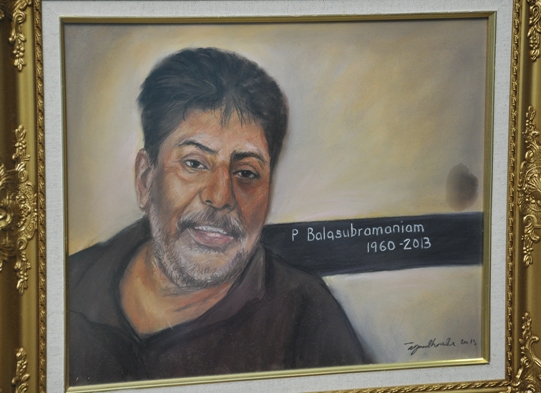
And yet, despite all the drama surrounding this secret agency over the past decade or so, many Malaysians still don’t know much about the SB (and we’ve got a reason for that). So who are the Special Branch, and what exactly do they do? We read up on what little literature there was on them, and listed 4 interesting things we managed to find out…

1. The Special Branch were created primarily as spies, not fighters

Remember Lai Teck? The enigmatic Vietnamese Malayan triple agent we wrote about not so long ago who was known for infiltrating the Communists, to the extent of actually becoming the Secretary-General of the MCP, and then stabbing them in the back?
According the the book “Malaya’s Secret Police 1945-60: The Role of the Special Branch in the Malayan Emergency” by Leon Comber (himself a Special Branch member during that time), this is exactly what the Special Branch was created to do: infiltrate the enemy and gather intel.
When the Brits founded Special Branch, it was intended to rely on HUMINT (Human Intelligence), rather than technical intelligence (i.e. imagery, signals, measurement and signature). Human Intelligence, as defined by NATO, is:
“… a category of intelligence derived from information collected by human operators and primarily provided by human sources.” – NATO Glossary of terms and definitions, AAP-6 (2018) (links directly to downloadable PDF)
In other words, Special Branch members, much like the CIA, MI6 or KGB, were trained as spies who live behind enemy lines, all the while extracting information from their unwitting and/or unwilling hosts via interpersonal contact.

As detailed by Comber, the SB were instrumental in taking down the Communists, allegedly managing to infiltrate organisations (i.e. Chinese schools, trade unions, political parties), weapons trafficking operations, religious sects, as well as political VIP inner circles, to name a few.
But they didn’t stop there. Special Branch also allegedly hijacked Communist ‘dead letter boxes’ (messages left in the jungle to provide fellow Commies with info, also known as ‘dead drops’), attached remote tracking devices onto radios sold at Chinese kedai runcit, and decoded Commie messages written on rice paper rolls.
Not very hi-tech by today’s standards, but it still did the job.
Note: We say ‘allegedly’ here because these are all from the same source, and there obviously isn’t a lot of Special Branch info out there, otherwise they wouldn’t be ‘special’, would they?
One of the Special Branch agents that recently came to light is Blossom Wong, who worked with the anti-vice unit, and somehow ended up escorting Robert F. Kennedy, when they were in Malaysia. Mysteriously, the original NST article has disappeared, but a quick Google will bring you several interesting results.
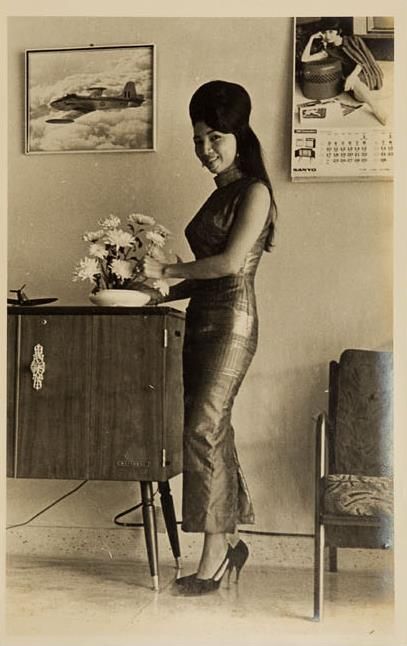
2. In modern times, they’ve foiled countless terror threats to Malaysia, online and offline
Fast forward to the 21st century, and Special Branch is still going strong. Here’s what the PDRM says about the role of Special Branch on their official website:
“… to gather quality security intelligence by clarifying the dimensions of a threat, to advise as well as carry out effective enforcement actions to maintain peace, order, and the security of the country.” – Official Portal of Royal Malaysia Police
In 2009, the Counter-Terrorism Division of Special Branch was founded in order to tackle terror threats, which range from Islamic State terrorists, to Abu Sayyaf insurgents in East Malaysia, to various local crime syndicates.
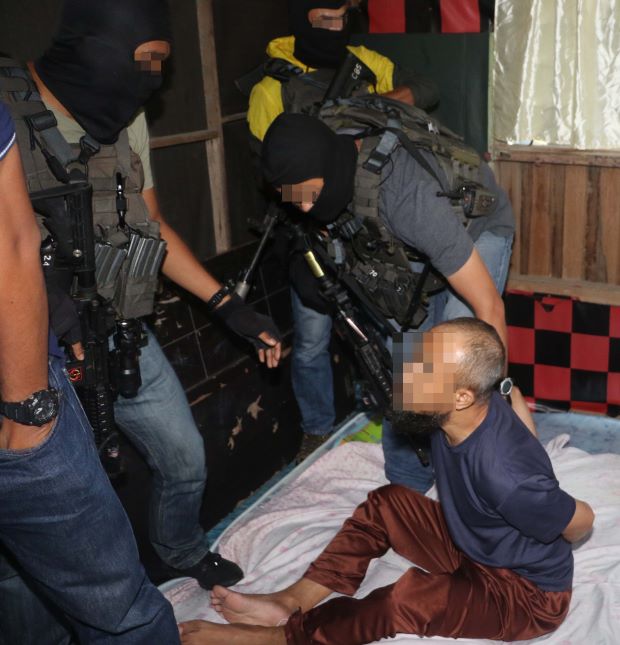
And, as it turns out, they’re pretty good at their job. Excluding the Movida Puchong grenade hiccup of 2016, major terror attacks in our country are pretty much unheard of, and it’s pretty much thanks to these guys; since their founding, the Counter-Terrorism Division of Special Branch have detected and neutralised hundreds of key militant elements.
In fact, Datuk Ayub Khan Mydin Pitchay, assistant director of Special Branch’s Counter-Terrorism Division, says that they had been watching IS years before the actual Movida attack took place. That’s not all, he actually predicted it the year before it happened! Psychic much?
“It is not a matter of if we will be attacked but when… They are planning to attack entertainment outlets and government buildings.” – Datuk Ayub Khan Mydin Pitchay, assistant director of Special Branch’s Counter-Terrorism Division, April 2015

But, how do they know these things? Datuk Ayub says IS in particular rely heavily on their social media machine, and as such, Special Branch pay close attention to their online activity, blocking sites and Twitter accounts which pose a threat. According to him, from the middle of 2015 until late 2016, they blocked 360,000 accounts!
And you thought getting shut out of your Blizzard account was bad.
3. Special Branch is not mentioned in Malaysian law
In 2005, our then-Yang Di-Pertuan Agong Tuanku Syed Sirajuddin Syed Putra Jamalullail launched The Special Commission To Enhance The Operation And Management Of The Royal Malaysia Police, headed by ex-Chief Justice and ex-police Inspector Tun Mohamed Dzaiddin bin Haji Abdullah, aaaaaand… they found that there is nothing in our laws that dictate the function, powers, or responsibilities of the Special Branch.
This is pretty remarkable, since our laws are even extensive enough to cover singing obscene songs.
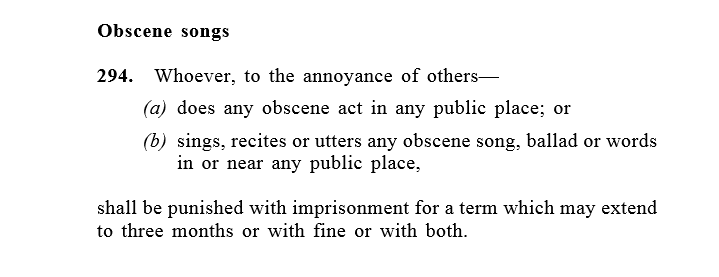
The only official mention of the supposed job scope of Special Branch in our Police Act 1967 are 4 words: “… collection of security intelligence” (s. 3[3]). And even then, the words ‘Special Branch’ are not mentioned anywhere in the Act!

The Dzaiddin Commission goes on to make the claim that “the SB are governed by a Charter issued by the Prime Minister after independence”. However, when the Dzaiddin Commission tried to take a look at this ‘Charter’, they were denied access. Yes, you read right, even the Agong’s Commission were blocked from viewing it!
Keep in mind that as of Budget 2016, the Special Branch budget was said to be RM492,358,000(!), and that there were 8287 Special Branch members budgeted for service (out of a total of 141,853 police positions). Pretty high for an office that legally ‘doesn’t exist’, especially considering the fact that these numbers were allocated at the expense of the Criminal Investigation Department (CID), who are being overburdened by an influx of cases.
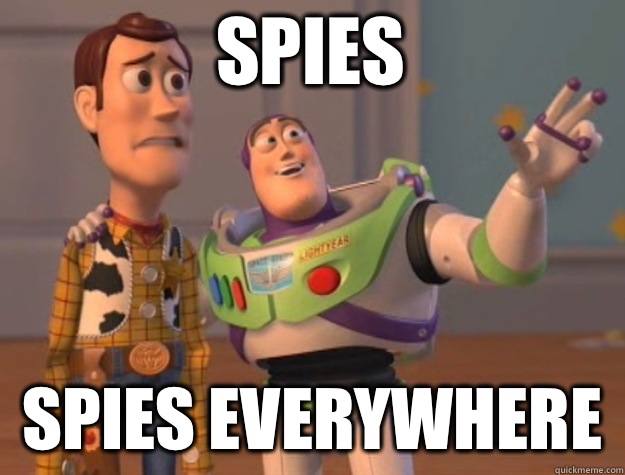
The apparent lack of check-and-balance and high budget spending has led to calls for reform, most notably from the Dzaiddin Commission themselves. Deputy Youth Minister Steven Sim Chee Keong and local human rights NGO SUARAM have also echoed their recommendations on restrictions to Special Branch, which include freedom from political interference, protection of the right to demonstrate, legal definitions, as well as an annual report to be presented in Parliament by the Prime Minister:
“While there is a need for an effective police intelligence unit to deal with crime and threats to national security, the Special Branch unit has long operated above the law.” – SUARAM
On top of all that, one of the issues raised by the Dzaiddin Commission was the alleged brutality used in their interrogations, with complainants describing said alleged brutality in gruesome detail (more on this later). It’s not really a huge shock then, that SUHAKAM and other NGOs are breathing down their backs with lawsuits and abduction allegations, given all that’s been said.
However, ex-IGP Tan Sri Musa Hassan has said that the SB are trained primarily in surveillance, and not for hostile engagements (i.e. abductions). Although we can’t confirm or deny the truth in this, it is consistent with their very reason for existence: as spies, not fighters.

Buuuut, since we mentioned interrogations in the previous paragraph…
4. The SB are apparently proficient at interrogations and ‘conversions’
One thing to keep in mind is that the Special Branch appear to be quite good at interrogations and convincing people to change sides; there is a slew of testimony that suggests this. Indeed, interrogations are described as one of the key methods of intelligence gathering in Comber’s book:
“… the immediate, thorough and systematic interrogation of a captured terrorist is the most important source of operational intelligence, which should be obtained and acted on immediately if it is to produce results.” – Keith Jeffrey, via Leon Comber in ‘Malaya’s Secret Police 1945-60: The Role of the Special Branch in the Malayan Emergency‘
During the Emergency, says Comber, the SB allegedly placed many undercover agents in the Min Yuen (a pro-Communist civilian movement), done mainly by ‘turning’ key Min Yuen members and known supporters, and threatening to detain them under the Emergency Regulations (which mandated the death penalty for unlawful possession of firearms or explosives).
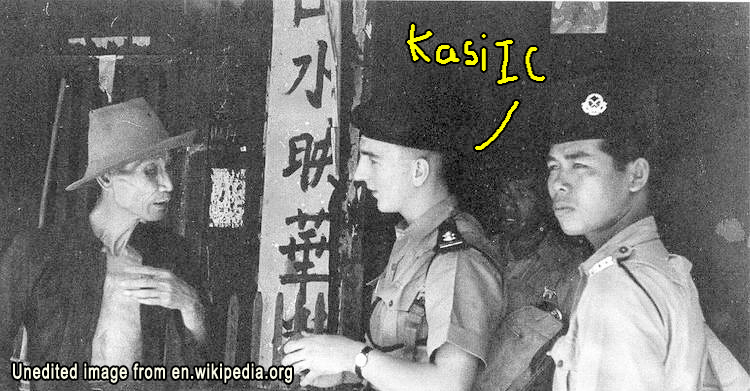
In more recent times, former prank victim of Cilisos political blogger Raja Petra Kamaruddin has claimed to have been interrogated multiple times by Special Branch over the years, beginning with his ISA detention in 2001, while another complainant was reportedly:
“… stripped naked, cold water was poured over him and he was put in an air-conditioned room… repeatedly hit during the interrogation until he lost consciousness… At all times he was handcuffed to the back and he was blindfolded… his mouth was forced open and he was forced to drink urine… His genitals were hit with a hard object.” – Dzaiddin Commission 2005

But perhaps the shadiest testimony of the Special Branch’s interrogations actually comes from the SB themselves.
During Anwar Ibrahim’s first sodomy trial, while testifying as a witness in court, then-SB director Mohamed Said Awang told the High Court that Special Branch employed a ‘secret technique’ to force witnesses to change their statements, referred to as a ‘turning over operation’. He explained that they would, 1) do a quick assessment of their target, 2) see how the possibilities are to turn over their stand, and 3) neutralise the stand if there is a security threat.
However, when pressed to reveal the details of said technique, he simply said:
“My Lord, this is a Special Branch secret. It is a great secret.” – Mohamed Said Awang, then-Special Branch director
When asked if he would lie in court if instructed by ‘someone higher than the Deputy Prime Minister’, he responded with:
“Depends on the situation… I may or I may not.” – Mohamed Said Awang, then-Special Branch director
It might be necessary to have them, but it’s also necessary to watch them
While Special Branch deserve respect for risking their lives by spawn-camping the bad guys in order to keep the country safe, that doesn’t mean they can’t be held accountable for any wrongdoing. One of the key concerns of the Dzaiddin Commission with respect to the Special Branch was greater accountability, yet this is made difficult given the lack of legal regulations governing Special Branch. This is actually a challenge faced by lawmakers even in more liberal countries as well, as can be seen with the CIA’s dodging of accountability by simply saying ‘it’s classified’, which, technically, their law supports.

Maybe Malaysia could take a page out of Croatia’s book; they’ve successfully managed to nerf their overpowered intelligence agency by introducing councils made up of executive, legislative, judicial, and civilian oversight mechanisms to ‘hold intelligence community accountable’. This means that either their President, their Parliament, their courts OR their civilians may monitor and file complaints against their intelligence agency. In the UK, MI6 reports to the Foreign Secretary, and in the US, the CIA reports to the Director of National Intelligence. This at least holds someone accountable for their actions, and secrets can still be redacted for the greater good.
Perhaps the golden question here is: Are the Special Branch’s power and jurisdiction proportionate to the threat level of crime and terrorism in a modern Malaysia? As former Bukit Aman CID chief Datuk Fauzi Shaari said regarding the need for Special Branch in today’s world:
“We have to accept that once, things were more serious and threatening. But now, the people have changed a lot.” – Datuk Fauzi Shaari, former Bukit Aman CID director
PS: If you’d like more stories like this, please subscribe to our HARI INI DALAM SEJARAH Facebook group ?
- 1.8KShares
- Facebook1.5K
- Twitter36
- LinkedIn28
- Email41
- WhatsApp139

